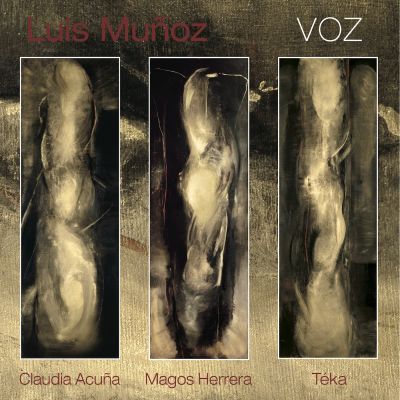Looking at the credits, Luis Muñoz’s gorgeous new album "Voz" seems like it’s all over the map. And it is, in the best possible way. It is a project overstuffed with an international array of artists who have each made memorable recordings of their own, but "Voz" never suffers from a lack of focus.
A multi-instrumentalist who plays piano, percussion, melodica and drums, Muñoz guides the proceedings carefully as a composer and arranger. He doesn’t even play on every track, but his generous spirit suffuses the music from beginning to end.
 As the title suggests, "Voz" is a project focusing on the human voice, and what voices! Muñoz showcases three remarkable women from across Latin America, creating bespoke compositions and arrangements to fit the contours of their unmistakable sounds. Like so many Latin American musicians who have settled in the United States in recent decades, Santa Barbara-based Muñoz has created a highly personal style that could be called Latin jazz, though it has little to do with the Afro-Cuban/jazz synthesis forged by Dizzy Gillespie, Chano Pozo and Mario Bauza in the 1940s.
As the title suggests, "Voz" is a project focusing on the human voice, and what voices! Muñoz showcases three remarkable women from across Latin America, creating bespoke compositions and arrangements to fit the contours of their unmistakable sounds. Like so many Latin American musicians who have settled in the United States in recent decades, Santa Barbara-based Muñoz has created a highly personal style that could be called Latin jazz, though it has little to do with the Afro-Cuban/jazz synthesis forged by Dizzy Gillespie, Chano Pozo and Mario Bauza in the 1940s.
Instead, he’s crafted a luscious sound that’s more interested in song form and creating evocative settings for lyrics than groove. He seems particularly inspired by Magos Herrera, a captivating jazz singer born and raised in Mexico City and now based in New York. She’s the most prominently featured of the album’s singers, and Muñoz makes the most out of her sensuously throaty voice on the opening track “Preludio y Fin.”

